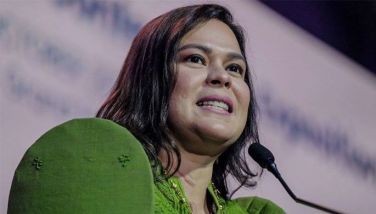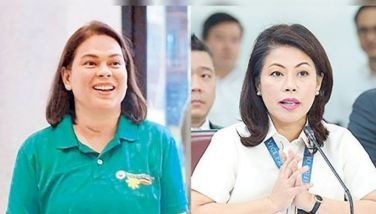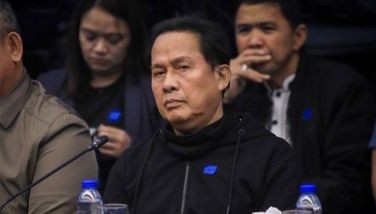PAO chief asks CSC to overturn CES Board ruling
MANILA, Philippines – Public Attorney’s Office (PAO) chief Persida Rueda-Acosta and her deputies yesterday asked the Civil Service Commission (CSC) to overturn a ruling of the Career Executive Service (CES) Board imposing eligibility requirement on them.
In a 22-page urgent memorandum appeal, Acosta said the CSC should impose on the CES Board, a subordinate office, its stand that PAO executives are permanent in their posts and do not require CES eligibility.
She asked the commission to set aside and nullify CES Resolution 918 issued last Jan. 12 for supposedly being contrary to law, illegal, improper and unconstitutional.
The PAO chief explained that the board did not recognize the position of the CSC, which states that her position is not covered by CES requirement under Republic Act 9406, the new law reorganizing PAO.
“It is basic in statutory construction that when the law is clear, there is no room for another interpretation,” according to PAO executives.
The PAO executive further said that RA 9406 gave security of tenure to the officials of the PAO, hence, they are exempt from the requirement of the CES eligibility.
The CSC issued last Tuesday a legal opinion signed by chairman Francisco Duque III and two commissioners stating that: “It is the Commission’s opinion that for purposes of permanent appointment to the positions of Chief Public Attorney, Deputy Chief Public Attorney and Regional Public Attorney, no third level eligibility is required but only RA 1080 (Bar) civil service eligibility.”
But the CES board issued a contrary opinion signed by seven of its eight members.
It is currently chaired by retired Court of Appeals Justice Bernardo Abesamis, while the six members are Susan Solo, director of Presidential Management Staff; Angelito Twano, regional director of Department of Public Works and Highways; Susana Vargas, deputy executive secretary for finance and administration of the President; Antonio Kalaw Jr., president of Development Academy of the Philippines; Proceso Domingo, undersecretary for civilian affairs of the Department of National Defense; and Jarius Paguntalan, deputy commissioner of Bureau of Customs.
The board’s vice chair, CSC chairman Duque, did not sign the ruling since their commission has a differing stand.
The CSC already submitted an opinion to Justice Secretary Leila de Lima that Acosta and her assistants do not need to take the CES Board exam to keep their permanent posts.
“It is the Commissioner’s opinion that for purposes of permanent appointment to the positions of Chief Public Attorney, Deputy Chief Public Attorney and Regional Public Attorney, no third level eligibility is required but only RA 1080 (Bar) civil service eligibility,” read the four-page opinion of CSC signed by Duque and two commissioners.
De Lima said she is now deciding on which between the CSC and CES board opinion should prevail.
Acosta earlier claimed that the CSC opinion should prevail since the CES board is just an “attached and subordinate agency” to the former.
But De Lima, expected to release a decision on the issue, believes the board’s opinion “should also be given weight since it has primary competence on the issue of CES eligibility.”
De Lima’s decision would either affirm or reverse the legal opinion issued by Chief State Counsel Ricardo Paras III last Jan. 3.
Paras believes the appointment of the PAO chief and her deputies “are without merit because their posts are part of the CES. It is required by law that they should be CES eligible to become permanent appointees to the said position.”
The DOJ suggested that Acosta and her deputies take the Civil Service exam to get CES officer level.
“Considering that the appointments of the Chief Public Attorney, Deputy Chief Public Attorneys and Regional Public Attorneys are temporary, they are required to subsequently take the CES examination.”
- Latest
- Trending





























